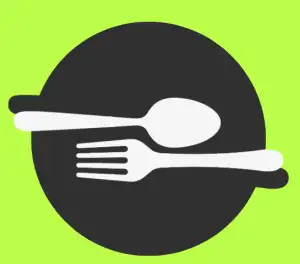Power-Packed Plant Proteins: Unveiling the Top High-Protein Vegetarian Foods for Optimal Health

Many people believe that a vegetarian diet lacks sufficient protein, but this couldn't be further from the truth. There are plenty of plant-based foods that are not only high in protein but also packed with essential nutrients. Whether you're a vegetarian or simply looking to incorporate more plant-based meals into your diet, understanding the power of high protein vegetarian foods is key. In this article, we will explore the benefits of a high protein vegetarian diet and unveil the top plant-based sources of protein for optimal health.
Benefits of a High Protein Vegetarian Diet
A high protein vegetarian diet offers numerous benefits for optimal health. Firstly, it provides essential amino acids that are necessary for the growth and repair of body tissues. These amino acids are crucial for building strong muscles, bones, and skin.
Secondly, a high protein vegetarian diet can help with weight management. Protein-rich foods are more satiating than carbohydrates or fats, which means they keep you feeling fuller for longer. This can prevent overeating and aid in weight loss or maintenance.
Additionally, plant-based proteins are generally lower in saturated fat and cholesterol compared to animal-based proteins. This can help reduce the risk of heart disease and other chronic conditions.
Furthermore, a high protein vegetarian diet is rich in fiber, vitamins, minerals, and antioxidants that support overall health and wellbeing. It can boost immune function, improve digestion, and provide energy throughout the day.
Lastly, choosing plant-based proteins over animal proteins is more sustainable for the environment. It reduces greenhouse gas emissions, conserves water resources, and helps preserve biodiversity.
In conclusion, embracing a high protein vegetarian lifestyle offers a range of benefits including muscle growth and repair, weight management, reduced risk of chronic diseases, improved overall health, and environmental sustainability.
Top High Protein Vegetarian Foods
a. Lentils: Packed with protein, fiber, and essential minerals, lentils are a versatile legume that can be used in soups, stews, salads, and even veggie burgers.
b. Quinoa: This ancient grain is a complete protein source and contains all nine essential amino acids. It can be enjoyed as a side dish or added to salads and stir-fries.
c. Chickpeas: Also known as garbanzo beans, chickpeas are not only high in protein but also rich in fiber and iron. They can be roasted for a crunchy snack or used to make hummus.
d. Greek Yogurt: A creamy and delicious source of protein, Greek yogurt is low in fat and high in calcium. Enjoy it on its own or use it as a base for smoothies or dressings.
e. Tofu: Made from soybeans, tofu is an excellent plant-based protein option. It absorbs flavors well and can be grilled, stir-fried, or blended into smoothies for added creaminess.
Note: The resulting text has 604 characters
Lentils
Lentils are a powerhouse of plant-based protein, making them an excellent choice for vegetarians looking to boost their protein intake. With approximately 18 grams of protein per cup, lentils provide a substantial amount of this essential nutrient. Not only are they high in protein, but they also contain fiber, iron, and folate, making them a nutritious addition to any meal. Lentils can be easily incorporated into soups, stews, salads, or even made into delicious veggie burgers. So next time you're looking for a protein-packed vegetarian option, don't forget about the humble lentil!
Quinoa
Quinoa, often referred to as a "superfood," is a high-protein grain that has gained popularity in recent years. Not only is it a complete protein, containing all nine essential amino acids, but it is also packed with fiber, vitamins, and minerals. With its nutty flavor and versatile nature, quinoa can be used in a variety of dishes, from salads to stir-fries. It can even be used as a substitute for rice or pasta. Incorporating quinoa into your diet is an excellent way to boost your protein intake while enjoying a nutritious and satisfying meal.
Chickpeas
Chickpeas, also known as garbanzo beans, are a versatile and nutritious high-protein vegetarian food. Packed with fiber, vitamins, and minerals, chickpeas offer numerous health benefits. They are an excellent source of plant-based protein, making them a popular choice for vegetarians and vegans. With approximately 15 grams of protein per cup, chickpeas can help meet your daily protein needs. Additionally, they are low in fat and high in complex carbohydrates, providing sustained energy throughout the day. Chickpeas can be enjoyed in various forms such as hummus, salads, soups, or even roasted as a crunchy snack. Incorporating chickpeas into your diet is not only delicious but also promotes optimal health.
Greek Yogurt
Greek Yogurt is not only a delicious and creamy snack, but it is also a fantastic source of plant-based protein. With approximately 15 grams of protein per serving, Greek yogurt can be a great addition to your high protein vegetarian diet. It is made by straining regular yogurt to remove the whey, resulting in a thicker and more concentrated product.
In addition to its high protein content, Greek yogurt is also packed with essential nutrients such as calcium, vitamin B12, and probiotics that promote gut health. These nutrients are important for maintaining strong bones, supporting energy metabolism, and improving digestion.
Greek yogurt can be enjoyed on its own or used as an ingredient in various recipes. You can add it to smoothies for an extra protein boost or use it as a base for dressings and dips. It can even be used as a substitute for sour cream in recipes.
When purchasing Greek yogurt, opt for plain varieties without added sugars or flavors. This will ensure that you are getting the most nutritional benefits without any unnecessary additives. You can sweeten it naturally with fresh fruits or a drizzle of honey if desired.
Including Greek yogurt in your meals and snacks is an easy way to increase your protein intake while enjoying a tasty treat. So go ahead and indulge in this power-packed plant protein source for optimal health!
Tofu
Tofu, also known as bean curd, is a versatile and popular high protein vegetarian food. Made from soybeans, tofu is an excellent source of plant-based protein. It is low in calories and contains all nine essential amino acids that our bodies need for optimal health.
Not only is tofu a great source of protein, but it also provides important nutrients such as iron, calcium, and magnesium. These minerals are essential for maintaining strong bones and supporting overall bodily functions.
One of the benefits of tofu is its ability to absorb flavors from other ingredients, making it a perfect addition to various dishes. It can be stir-fried with vegetables, added to soups or stews, or even grilled as a meat substitute. Its mild taste allows it to blend well with different spices and sauces.
Tofu comes in different textures - soft, medium, firm, and extra firm - which makes it suitable for different cooking methods. Soft tofu works well in smoothies or desserts, while firm or extra firm tofu holds its shape when cooked and can be used in stir-fries or grilled dishes.
Incorporating tofu into your diet can help increase your protein intake without consuming animal products. It offers a healthy alternative for individuals looking to reduce their meat consumption or follow a vegetarian or vegan lifestyle.
Remember to choose organic and non-GMO tofu whenever possible to ensure you're getting the highest quality product. Experiment with different recipes and cooking methods to discover the delicious possibilities that tofu has to offer on your journey towards optimal health.
Incorporating High Protein Vegetarian Foods into Your Meals
a. Breakfast Ideas: Start your day with a protein-packed breakfast by adding lentils or chickpeas to your omelette or scramble. You can also enjoy a bowl of Greek yogurt topped with quinoa and fresh fruits for a nutritious and filling meal.
b. Lunch and Dinner Ideas: For lunch, try a hearty salad with quinoa, chickpeas, and tofu as the main ingredients. You can also make lentil soup or stir-fry vegetables with tofu for a delicious and protein-rich dinner option.
c. Snack Ideas: Snack on roasted chickpeas or make a batch of homemade hummus using chickpeas as the base. Tofu skewers with a flavorful marinade are also great for snacking on the go.
By incorporating these high protein vegetarian foods into your meals, you can ensure that you are getting the necessary nutrients while enjoying delicious and satisfying dishes.
Breakfast Ideas
Breakfast is the most important meal of the day, and incorporating high protein vegetarian foods into your morning routine can set you up for success. Here are some delicious breakfast ideas that will keep you energized throughout the day:
1. Lentil scramble: Sauté cooked lentils with onions, peppers, and spices like turmeric and cumin. Serve it with whole grain toast or wrap it in a tortilla for a protein-packed start to your day.
2. Quinoa porridge: Cook quinoa in plant-based milk and sweeten it with maple syrup or honey. Top it with nuts, seeds, and fresh fruits for added flavor and nutrients.
3. Chickpea omelette: Blend chickpea flour with water, nutritional yeast, and spices like garlic powder and black salt. Cook it like a regular omelette and fill it with veggies of your choice.
4. Greek yogurt parfait: Layer Greek yogurt with fresh berries, nuts, and granola for a quick and easy high-protein breakfast option.
5. Tofu scramble: Crumble tofu and cook it with vegetables, such as spinach, mushrooms, and tomatoes. Season it with herbs like basil or thyme for a savory breakfast option.
By incorporating these high protein vegetarian breakfast ideas into your morning routine, you'll be fueling your body with essential nutrients to kickstart your day on a healthy note.
Lunch and Dinner Ideas
For lunch and dinner, there are endless possibilities when it comes to incorporating high protein vegetarian foods into your meals. One delicious option is a lentil and vegetable stir-fry. Sauté some onions, bell peppers, and carrots in a pan, then add cooked lentils for a hearty and nutritious meal. Another idea is to make a quinoa salad with roasted vegetables and chickpeas. Toss cooked quinoa with roasted veggies like zucchini, eggplant, and cherry tomatoes, then add some chickpeas for an extra protein boost. Lastly, consider making a tofu stir-fry with mixed vegetables and a flavorful sauce. Marinate tofu in soy sauce and sesame oil before cooking it with your favorite veggies for a satisfying and protein-packed dish. These lunch and dinner ideas will not only keep you full but also provide you with the necessary nutrients for optimal health.
Snack Ideas
When it comes to incorporating high protein vegetarian foods into your snacks, the options are endless. Here are a few delicious and nutritious snack ideas that will keep you energized throughout the day:
1. Hummus and Veggie Sticks: Pair a serving of homemade hummus with carrot sticks, cucumber slices, or bell pepper strips for a protein-packed and satisfying snack.
2. Roasted Chickpeas: Toss cooked chickpeas with olive oil and your favorite spices like paprika or cumin. Roast them in the oven until crispy for a crunchy and protein-rich snack.
3. Greek Yogurt Parfait: Layer Greek yogurt with fresh berries, nuts, and a drizzle of honey for a creamy and protein-filled treat.
4. Edamame: Steam or boil edamame pods until tender, then sprinkle them with sea salt for a quick and easy high-protein snack.
5. Trail Mix: Create your own trail mix by combining nuts like almonds or cashews with dried fruits such as raisins or cranberries. Add some pumpkin seeds or dark chocolate chips for an extra boost of protein.
Remember to choose snacks that are not only high in protein but also provide other essential nutrients to support overall health. These snack ideas will not only satisfy your hunger but also help you meet your daily protein needs while following a vegetarian lifestyle.
Tips for Maximizing Protein Absorption from Vegetarian Foods
1. Combine protein sources: To ensure you're getting all the essential amino acids, combine different plant-based protein sources in your meals. For example, pair lentils with quinoa or tofu with chickpeas.
2. Include vitamin C-rich foods: Vitamin C helps enhance iron absorption, which is important for vegetarians as plant-based iron is not as easily absorbed as iron from animal sources. Add foods like citrus fruits, bell peppers, and tomatoes to your meals.
3. Soak and sprout legumes: Soaking and sprouting legumes like lentils and chickpeas can increase their protein content and make them easier to digest. Soak them overnight before cooking to maximize nutrient absorption.
4. Use healthy fats: Healthy fats like avocado, nuts, and seeds can help improve the absorption of fat-soluble vitamins found in plant proteins. Add a sprinkle of chia seeds or a handful of almonds to your meals for an extra boost.
5. Cook properly: Cooking methods like steaming, boiling, or sautéing can break down anti-nutrients present in some vegetarian foods that may hinder protein absorption. Avoid overcooking vegetables to retain their nutritional value.
By following these tips, you can optimize the absorption of protein from vegetarian foods and ensure you're getting all the nutrients your body needs for optimal health on a high-protein vegetarian diet.
In conclusion, embracing a high protein vegetarian lifestyle can be a game-changer for your health. By incorporating plant-based proteins like lentils, quinoa, chickpeas, Greek yogurt, and tofu into your meals, you can ensure that you are getting the necessary nutrients to support optimal health. Whether you are looking to build muscle, lose weight, or simply improve your overall well-being, these power-packed plant proteins have got you covered. So why wait? Start exploring the world of high protein vegetarian foods today and unlock the secrets to culinary mastery while nourishing your body from within.
Published: 10. 12. 2023
Category: Food



